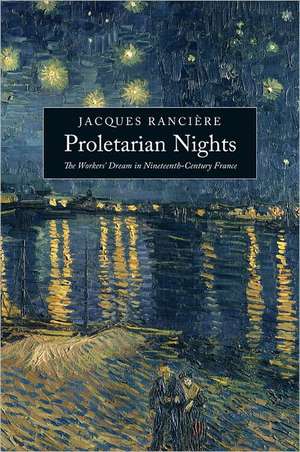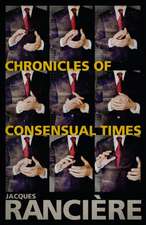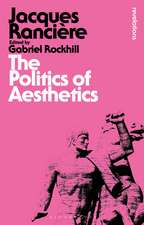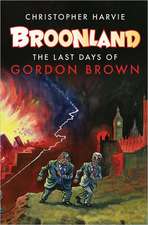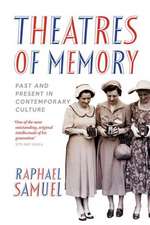Proletarian Nights: The Workers' Dream in Nineteenth-Century France
Autor Jacques Ranciere Donald Reid Traducere de John Druryen Limba Engleză Paperback – 31 mar 2012
This updated edition includes a new preface by the author, revisiting the work twenty years since its first publication in France.
Preț: 251.44 lei
Nou
Puncte Express: 377
Preț estimativ în valută:
48.12€ • 50.59$ • 39.76£
48.12€ • 50.59$ • 39.76£
Carte disponibilă
Livrare economică 26 martie-09 aprilie
Preluare comenzi: 021 569.72.76
Specificații
ISBN-13: 9781844677788
ISBN-10: 1844677788
Pagini: 442
Dimensiuni: 152 x 231 x 36 mm
Greutate: 0.74 kg
Ediția:Updated
Editura: VERSO
ISBN-10: 1844677788
Pagini: 442
Dimensiuni: 152 x 231 x 36 mm
Greutate: 0.74 kg
Ediția:Updated
Editura: VERSO
Notă biografică
Jacques Rancière is Emeritus Professor of Philosophy at the University of Paris-VIII. His books include The Politics of Aesthetics, On the Shores of Politics, Short Voyages to the Land of the People, The Nights of Labor, Staging the People, and The Emancipated Spectator.
Recenzii
“With its innovative approach, Rancière’s difficult and provocative interpretation is essential reading.”—Choice
“Rancière’s brilliant book ... locates the nineteenth-century origins of European socialism not in the noble desire of artisans to control their own labor but in the utopian visions of working-class poets who wanted to be free of labor altogether ... This is a powerful, piercing, and radical argument ... Rancière has merged his philosophical and historical interests into a profound commentary on the possibilities of human freedom and of the violence done to those possibilities in freedom’s name.”—Oral History Review
“Drury’s translation puts it into English as directly and comprehensibly as possible. It’s a difficult job to do well, and the translator’s work goes a long way toward making the book more readable.”—Book News
“Rancière’s brilliant book ... locates the nineteenth-century origins of European socialism not in the noble desire of artisans to control their own labor but in the utopian visions of working-class poets who wanted to be free of labor altogether ... This is a powerful, piercing, and radical argument ... Rancière has merged his philosophical and historical interests into a profound commentary on the possibilities of human freedom and of the violence done to those possibilities in freedom’s name.”—Oral History Review
“Drury’s translation puts it into English as directly and comprehensibly as possible. It’s a difficult job to do well, and the translator’s work goes a long way toward making the book more readable.”—Book News
